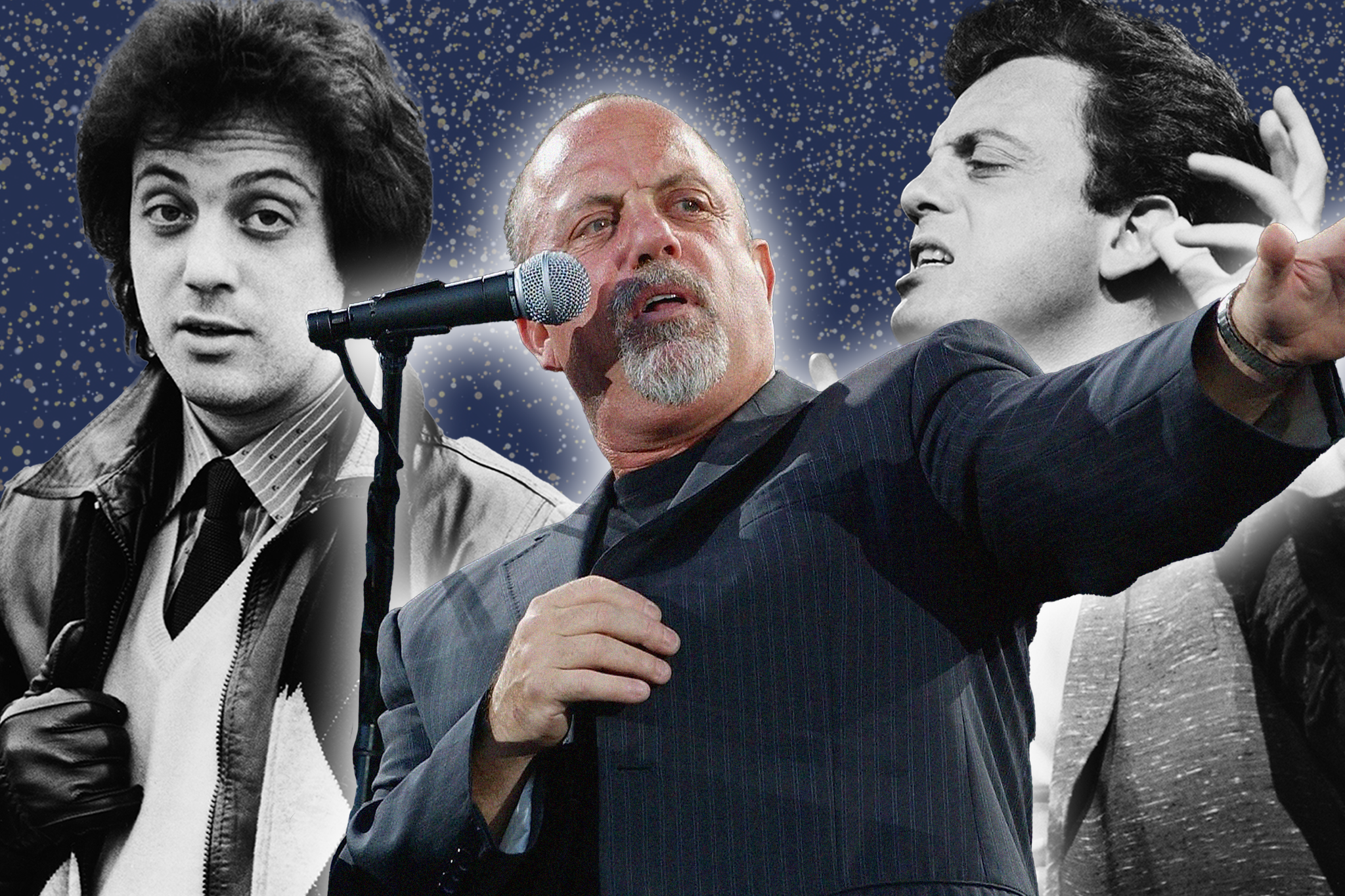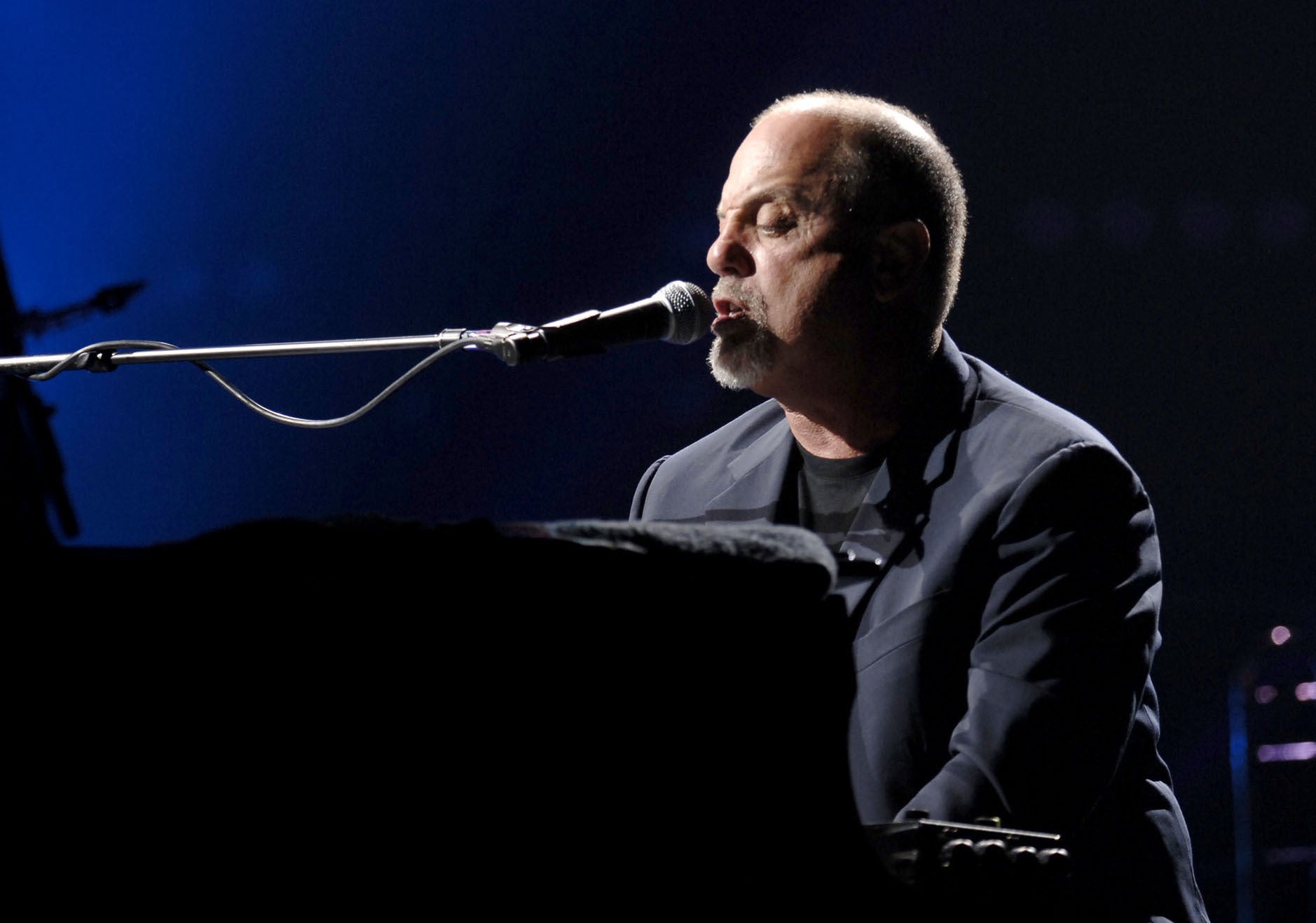Welcome back Billy Joel, piano man and dad dancer supreme – you were always much better than we made out
Derided for much of his career as a naff lightweight Springsteen who produced music that sounded ‘like a dentist drill’, the ‘Uptown Girl’ singer is about to release his first new song in 17 years. Ed Power says it’s time to celebrate an ‘Innocent Man’ who produced moments of subversive genius he’s never got credit for

Is it time to admit we’ve been wrong about Billy Joel? Going back to the early 1980s and the doo-wop juggernaut that was “Uptown Girl”, it has been fashionable to deride the singer – who has just announced his first new song in 17 years – as a naff lightweight ranking somewhere between a diet cola Elton John and shoddy Springsteen knock-off.
“He’s the sort of popular artist who makes elitism seem not just defensible but necessary,” began a notorious New York Times review of one of Joel’s early shows at Madison Square Garden. “Anodyne, sappy, superficial, derivative, fraudulently rebellious,” agreed Slate in 2009. “A terrible piece of music… it’s like a dentist drill,” another prominent voice told a documentary maker in 1993. And that was Joel himself talking about one of his defining hits, “We Didn’t Start the Fire”.
Has hindsight revealed that these critics were speaking nonsense? Joel, shortly to embark on a US stadium tour with Stevie Nicks and Sting, was undoubtedly out of order in dismissing his own 1989 smash in which he breathlessly zipped through the entire history of 20th-century America and further afield. How could anyone find it in them to dislike a song that juxtaposes Robert Heinlein’s Stranger in a Strange Land and the foiled CIA incursion at the Bay of Pigs. Or which rhymes “Malcolm X” with “British politician sex”?

The rehabilitation of Billy Joel has been in the works for quite a while. But it was confirmed this week when news of a brand new track arriving on Thursday 1 February received a universal welcome. Even publications that had in the past delighted in burying him – the NME and the aforementioned New York Times – reported the breaking development with breathless gusto. Nowhere was there any suggestion Joel’s return to frontline songwriting after a hiatus he has maintained, with just a few exceptions, since 1993, was anything other than a positive.
Part of the reason for the reflexive derision is surely that he has never made any great claims for his music
The response to the imminent arrival of the single “Turn the Lights Back On” has been equally enthusiastic on social media, where haters really are gonna hate. “Great! The Piano Man strikes again!” went a typical tweet. “I’m sobbing,” agreed the official X/Twitter account of the Empire State Building. Even US national landmarks are glad to have him back.
They’re not the only ones. In August 2022, Gen Z mega-star Olivia Rodrigo outed herself as a Joel fan when appearing on stage with him at Madison Square Garden. Beaming from ear to ear, she joined Joel on the Zoomer-to-Boomer one-two of her hit “deja Vu” and his” Uptown Girl” – having already famously referenced Joel in the “Deja Vu” lyrics (“I bet that she knows Billy Joel/ ’Cause you played her ‘Uptown Girl’”).
Joel has sold 150 million records since his breakout second LP, Piano Man, in 1973. The title track to that album is a snapshot of his music. Inspired by his real-life experience as a lounge pianist in Los Angeles, he paints an affecting portrait of a bar full of drinkers trying to numb their woes with booze. The melody is frothy, the chorus broad – but the lyrics are searing and truthful, particularly when Joel diagnoses that, behind their beer-fuelled camaraderie, his audience are all so terribly isolated. “They’re sharing a drink they call loneliness,” he croons as the song reaches halfway. “But it’s better than drinkin’ alone.”

Surely, the real mystery, then, is why he was such a punchbag to begin with. Joel has had his cheesy moments. He will, in particular, be forever haunted by the atrocious video to “Uptown Girl” from 1983 in which he dressed as a mechanic and invented dad-dancing with his embarrassing moves – all for the benefit of a love interest played by his future wife, proto-supermodel Christie Brinkley (the second of his four spouses).
But every artist has a skeleton in their cupboard. Elton John is universally adored despite foisting upon the world the aural syrup that was the Lion King soundtrack. And Bruce Springsteen – as with Joel, a blue-collar son of New York’s outer suburbs – has visited the occasional atrocity on fans. If Springsteen can be forgiven for the synth carnage of “Glory Days”, why not Joel for “Uptown Girl” (under the bonnet, an intelligent take on the fraught dynamic between romance and social status)?
There is even a case to be made that Joel did Springsteen before Bruce Springsteen. In 1982, two years prior to Born in the USA, Springsteen’s demolition job on stars and stripes exceptionalism, Joel’s The Nylon Curtain album had counted the ways in which the “land of the free” had betrayed the American dream.
“Well, we’re living here in Allentown/ And they’re closing all the factories down” goes the first line on the record. The song “Allentown” proceeds to lament the shuttering of heavy industry in rural Pennsylvania (“We’re waiting here in Allentown/ But they’ve taken all the coal from the ground”). Having grown up in hardscrabble circumstances in Long Island, New York the son of a single mother, Joel knew how it felt to be written off and overlooked – and he brings real anger to his rumination on America’s decline.
Later on the same album, the seven-minute “Goodnight Saigon” essentially invents Oliver Stone’s entire career: it opens with the ominous swooshing noise of a Bell UH-1 Iroquois “Huey” helicopter and plunges into lyrics inspired by the Long Island friends of Joel who had fought in Vietnam (and who asked that he write about their experiences).
“Goodnight Saigon” ultimately wasn’t about the soldiers, however. It was about those who stayed behind and how they failed the young men packed off to fight a pointless war in a strange country. “The guys came home from Vietnam and that’s it?” Joel asked aloud in the Daytona Beach Morning Journal in 1982. “It doesn’t end until these guys are absorbed into the mainstream and we deal with our feelings about it.”
Some of my songs are pretty damn good. Some stink out loud
Joel was never universally disliked; he was popular. He played Hyde Park last year, while a long-term residency at Madison Square Garden will finally conclude this July after a decade of monthly sell-outs. But nor was he ever accorded the acclaim bestowed on his upcoming touring partners Stevie Nicks and Sting. As with Joel, there was a time when they were disparaged as corporate monoliths. Nick’s Fleetwood Mac were regarded through the 1980s as soft-rock hellspawn; Sting was mocked for his environmental campaigning and his passion for lutes. Today, they are considered as icons. Why not Joel?
Part of the reason for the reflexive derision is surely that he has never made any great claims for his music. As his unkind remarks about “We Didn’t Start the Fire” demonstrate, Joel has always been his own harshest critic, with no interest in that traditional rock star pursuit of self-mythologising.
“I’ve written some real stinkers I wish I could take back,” he told the LA Times last year, singling out “When in Rome”, the penultimate number from 1989’s Storm Front, as particularly grim. “Some of my songs are pretty damn good. Some stink out loud. I once tried to write a song in French, and I don’t even speak French. So that was a disaster,” he said in another interview. “I’d say about half of my songs are passable, but there’s a bunch I would throw away.”
You can count on one hand the number of artists who denigrate their own work. David Bowie was dismissive of the cash-in hits he wrote in the 1980s – yet only when trying to reboot his image as the godfather of industrial rock in the 1990s. Joel has no agenda. He calls it as he sees it.
But nowadays, that honesty feels refreshing and authentic. Joel has declined to make another album since 1993’s excellent River of Dreams, explaining the fun had gone out of it – and who needed new Billy Joel songs, anyway? He has finally changed that opinion – and regardless of whether “Turn the Lights Back On” is another “Piano Man” or a “stinker” he immediately regrets, anticipation is building. After a lifetime as a punch-bag for critics, Joel may be on the cusp of a status he’s never previously attained. It looks like he’s about to become universally beloved.
‘Turn the Lights Back On’ is out on 1 February






Join our commenting forum
Join thought-provoking conversations, follow other Independent readers and see their replies
Comments